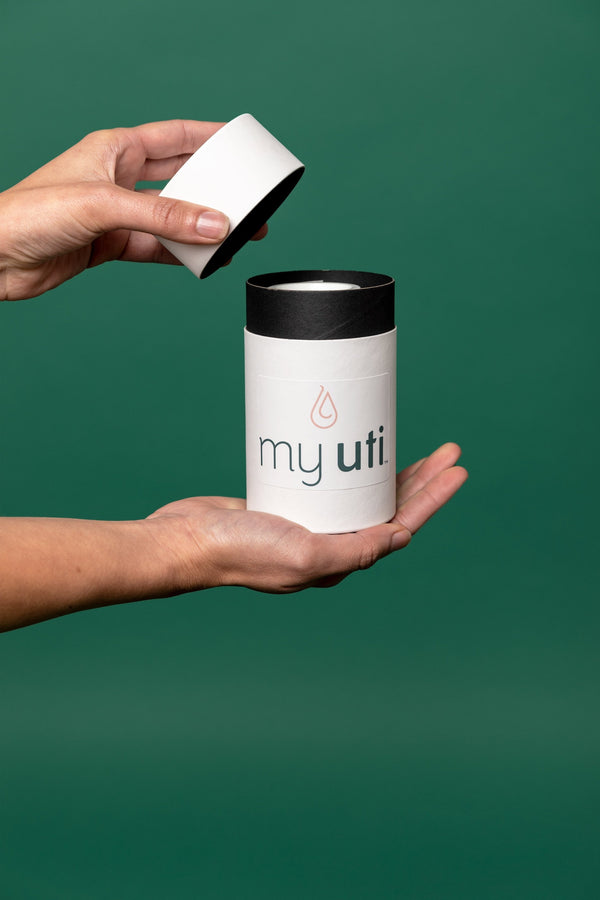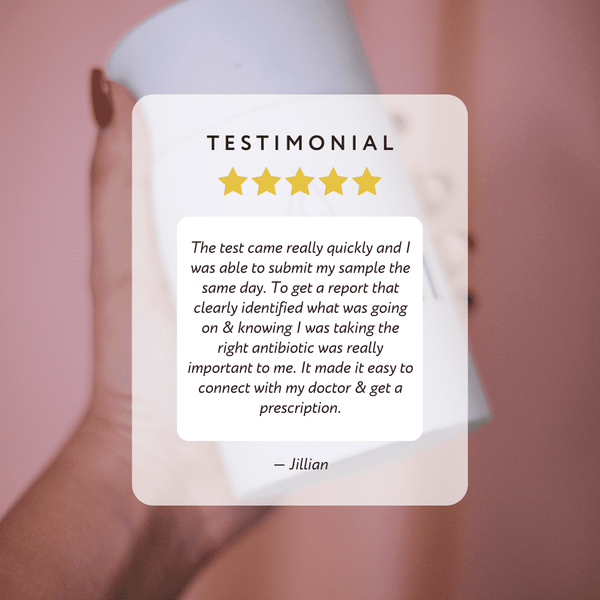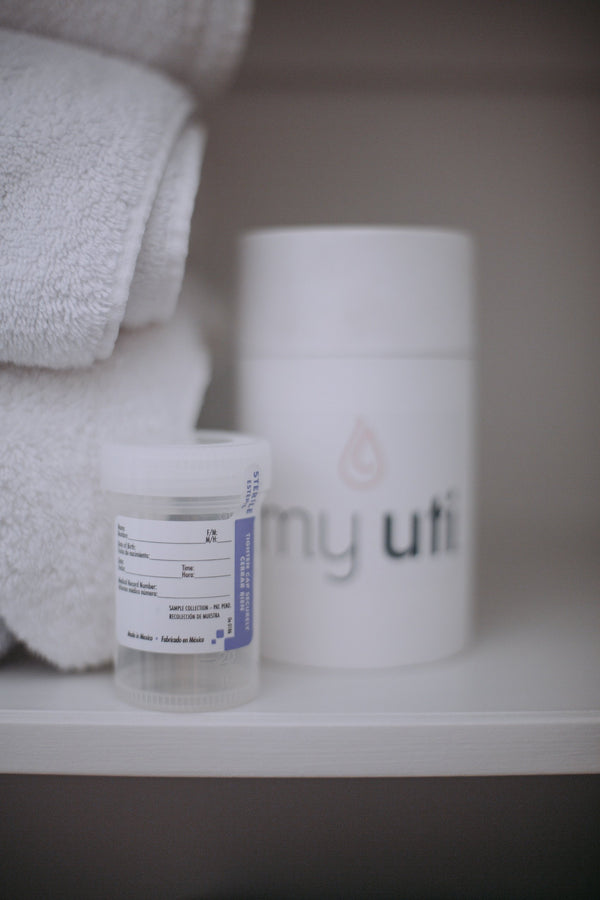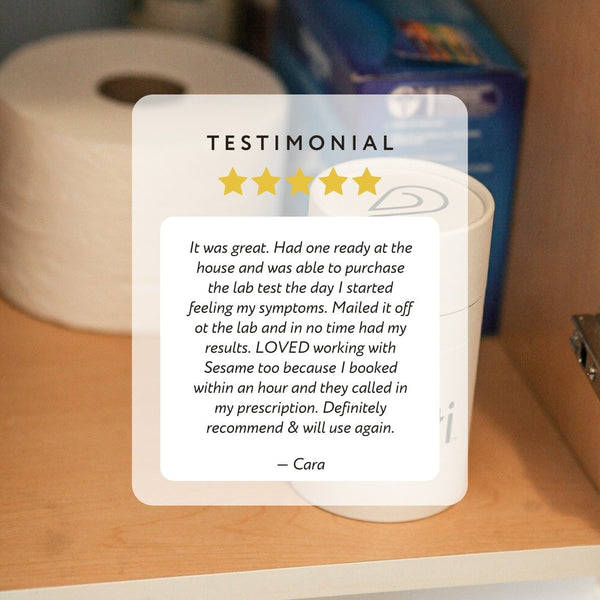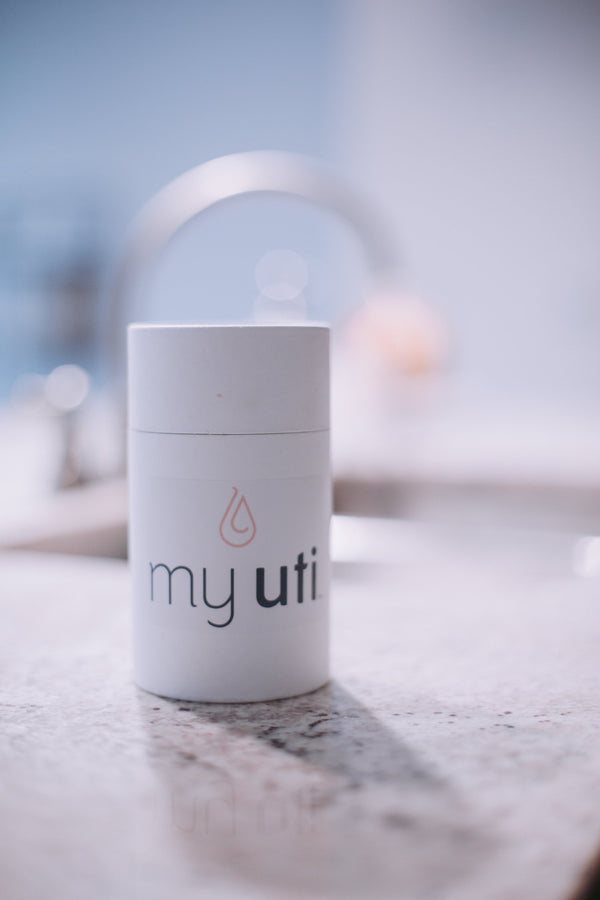Know your lube: for healthy sex without amping up your UTI risks
Nov 28, 2022
Whether you prefer partnered sex, going solo or experimenting with toys - lubricants can reduce friction and heighten pleasure. But how can you ensure you’re enjoying sex without worrying about increasing your risk of getting a UTI? In this blog, we’ll explain what to look for in a good lubricant and why you should avoid certain ingredients.
Will sex give me a UTI?
Urinary tract infections are triggered by bacteria entering your urethra and causing an infection in your urinary tract. The genital ecosystem contains a host of bacteria, fungi and viruses. So naturally, being sexually active can move things around down there - making it easier for bacteria to enter your urethra.
Let’s get one thing straight: sex is not dirty.
Just because sex can sometimes heighten your risk of getting a UTI, doesn’t mean you should avoid it altogether. By being mindful of the products and habits you use to protect your microbiome, you can have a healthy sex life without amping up your UTI risks.
Why do I need to protect my microbiome?
Your vaginal and urinary microbiomes are living communities of tiny organisms called microbes. Microbiomes need to live in harmony with a healthy PH level to protect you from infection. For example, the vaginal microbiome is slightly acidic with a PH level between 3.8 and 4.5 - the perfect environment for good bacteria to fight off infection.
However, your vaginal microbiome and its PH are delicate. They can be impacted by factors like antibiotics, soaps, sperm or lubricants. When damaged, your microbiome becomes less effective at fighting off infection, leaving you more susceptible to recurrent UTIs.
What ingredients should I avoid?
Being picky about the type of lube you use is key to reducing your risk of recurrent UTIs.
Typical ingredients to avoid include:
-
Spermicide
-
Glycerin or Sorbitol
-
Sweeteners
Some lubricants contain spermicide as a method of birth control - but these chemicals can damage your microbiome, killing good bacteria as well as sperm.
Glycerin and sorbitol are often used in lubricants to create that slippery smooth sensation, whereas sweeteners are used to enhance the flavour.
These ingredients can act like sugars - providing the perfect food for bacteria if not washed away properly. Sugar allows your vaginal yeast to grow and multiply, throwing off the delicate balance of your microbiome and reducing your body’s ability to fight off infection.
What type of lube should I use to avoid UTIs?
Lubricants can be categorized into two groups: oil-based or water-based.
Water-based lube is best for keeping your microbiome healthy.
Firstly, water-based lube is safe to use with both condoms and sex toys, whereas oil-based lubes can damage latex and silicone. This makes oil-based lube fine for masturbation but water-based is the safest choice when it comes to safe sex with a partner or toy.
Water-based lube is also easier to wash away after sex, whereas oil-based lube can leave a sticky residue. If not washed away properly, any remaining lubricant can serve as a breeding ground for bacteria. Some people might also be tempted to scrub their vulva using harsh soaps to get rid of the residue, damaging their microbiome and increasing their risk of UTIs in the process.
What else can I do to have healthy sex without amping up my UTI risk?
Even when you’ve found the perfect lubricant that works for you - you should always try and pee after sex. It flushes out your urinary tract from the inside and reduces the chances of bad bacteria getting in there.
Still feeling anxious about your next UTI? Order one of our Just in Case Kits now to be ready to test as soon as that first symptom strikes.



